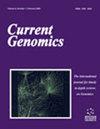Exploring the Role of Non-synonymous and Deleterious Variants Identified in Colorectal Cancer: A Multi-dimensional Computational Scrutiny of Exomes
IF 1.4
4区 生物学
Q4 BIOCHEMISTRY & MOLECULAR BIOLOGY
引用次数: 0
Abstract
Introduction:: Colorectal cancers are the world’s third most commonly diagnosed type of cancer. Currently, there are several diagnostic and treatment options to combat it. However, a delay in detection of the disease is life-threatening. Additionally, a thorough analysis of the exomes of cancers reveals potential variation data that can be used for early disease prognosis. Method:: By utilizing a comprehensive computational investigation, the present study aimed to reveal mutations that could potentially predispose to colorectal cancer. Ten colorectal cancer exomes were retrieved. Quality control assessments were performed using FastQC and MultiQC, gapped alignment to the human reference genome (hg19) using Bowtie2 and calling the germline variants using Haplotype caller in the GATK pipeline. The variants were filtered and annotated using SIFT and PolyPhen2 successfully categorized the mutations into synonymous, non-synonymous, start loss and stop gain mutations as well as marked them as possibly damaging, probably damaging and benign. This mutational profile helped in shortlisting frequently occurring mutations and associated genes, for which the downstream multi-dimensional expression analyses were carried out. Result:: Our work involved prioritizing the non-synonymous, deleterious SNPs since these polymorphisms bring about a functional alteration to the phenotype. The top variations associated with their genes with the highest frequency of occurrence included LGALS8, CTSB, RAD17, CPNE1, OPRM1, SEMA4D, MUC4, PDE4DIP, ELN and ADRA1A. An in-depth multi-dimensional downstream analysis of all these genes in terms of gene expression profiling and analysis and differential gene expression with regard to various cancer types revealed CTSB and CPNE1 as highly expressed and overregulated genes in colorectal cancer. Conclusion:: Our work provides insights into the various alterations that might possibly lead to colorectal cancer and suggests the possibility of utilizing the most important genes identified for wetlab experimentation.探索在结直肠癌中发现的非同义变异和致死变异的作用:外显子组的多维计算审查
导言结直肠癌是世界上第三大最常诊断出的癌症类型。目前,有多种诊断和治疗方法可与之抗衡。然而,如果不能及时发现疾病,就会危及生命。此外,对癌症外显子组的全面分析揭示了潜在的变异数据,可用于疾病的早期预后。方法:本研究旨在通过全面的计算调查,揭示可能导致结直肠癌的潜在变异。研究人员检索了 10 个结直肠癌外显子组。使用 FastQC 和 MultiQC 进行质量控制评估,使用 Bowtie2 与人类参考基因组(hg19)进行间隙配对,并使用 GATK 管道中的 Haplotype caller 调用种系变异。使用 SIFT 和 PolyPhen2 对变异进行了过滤和注释,成功地将变异分为同义变异、非同义变异、起始丢失变异和终止增益变异,并将其标记为可能损伤性变异、可能损伤性变异和良性变异。这种突变特征有助于筛选出频繁发生的突变和相关基因,并对其进行下游多维度表达分析。结果我们的工作包括优先考虑非同义、有害的 SNP,因为这些多态性会导致表型的功能性改变。出现频率最高的变异基因包括 LGALS8、CTSB、RAD17、CPNE1、OPRM1、SEMA4D、MUC4、PDE4DIP、ELN 和 ADRA1A。通过对所有这些基因的基因表达谱进行深入的多维下游分析,以及对不同癌症类型的差异基因表达进行分析,发现 CTSB 和 CPNE1 是结直肠癌中高表达和高调的基因。结论我们的工作使我们对可能导致结直肠癌的各种改变有了更深入的了解,并提出了利用已确定的最重要基因进行湿实验室实验的可能性。
本文章由计算机程序翻译,如有差异,请以英文原文为准。
求助全文
约1分钟内获得全文
求助全文
来源期刊

Current Genomics
生物-生化与分子生物学
CiteScore
5.20
自引率
0.00%
发文量
29
审稿时长
>0 weeks
期刊介绍:
Current Genomics is a peer-reviewed journal that provides essential reading about the latest and most important developments in genome science and related fields of research. Systems biology, systems modeling, machine learning, network inference, bioinformatics, computational biology, epigenetics, single cell genomics, extracellular vesicles, quantitative biology, and synthetic biology for the study of evolution, development, maintenance, aging and that of human health, human diseases, clinical genomics and precision medicine are topics of particular interest. The journal covers plant genomics. The journal will not consider articles dealing with breeding and livestock.
Current Genomics publishes three types of articles including:
i) Research papers from internationally-recognized experts reporting on new and original data generated at the genome scale level. Position papers dealing with new or challenging methodological approaches, whether experimental or mathematical, are greatly welcome in this section.
ii) Authoritative and comprehensive full-length or mini reviews from widely recognized experts, covering the latest developments in genome science and related fields of research such as systems biology, statistics and machine learning, quantitative biology, and precision medicine. Proposals for mini-hot topics (2-3 review papers) and full hot topics (6-8 review papers) guest edited by internationally-recognized experts are welcome in this section. Hot topic proposals should not contain original data and they should contain articles originating from at least 2 different countries.
iii) Opinion papers from internationally recognized experts addressing contemporary questions and issues in the field of genome science and systems biology and basic and clinical research practices.
 求助内容:
求助内容: 应助结果提醒方式:
应助结果提醒方式:


